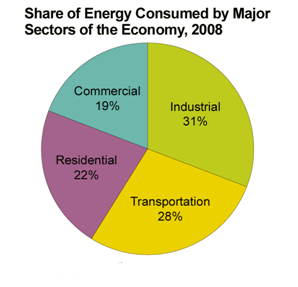Single Phase Input DC Drive
Armature voltage-controlled DC drives are constant torque drives, capable of rated motor torque at any speed up to rated motor base speed. Fully controlled rectifier circuits are built with SCRs. The SCRs rectify the supply voltage (changing the voltage from AC to DC) as well as controlling the output DC voltage level. In this circuit, silicon controlled rectifiers S1 & S3 are triggered into conduction on the positive half of the input waveform & S2 & S4 on the negative half. Freewheeling diode D (also called a suppressor diode) is connected across the armature to provide a path for release of energy stored in the armature when the applied voltage drops to zero. A separate diode bridge rectifier is used to convert the alternating current to a constant direct current required for the field circuit.
Single-phase controlled bridge rectifiers are commonly used in the smaller-horsepower DC drives. The terminal diagram shows the input & output power & control terminations available for use with the drive. Features include:
Single-phase controlled bridge rectifiers are commonly used in the smaller-horsepower DC drives. The terminal diagram shows the input & output power & control terminations available for use with the drive. Features include:
- Speed or torque control
- Tachometer input
- Fused input
- Speed or current monitoring (0-10 V DC or 4-20 mA)
You may also like:
It's always best to first check with your VFD installation and operation documentation. It is likely that the drives manufacturer makes recommendations for reactor ratings. That said 3 to 5% reactance at the ...
The PLC languages themselves are fairly similar between different manufacturers. You basically have ladder logic (which looks like a relay contact map), function blocks (which are more akin to an electronic ...
A graphical impedance analyzer with good phase resolution is a must. Some brands have all the bells and whistles, but not the phase resolution necessary to accurately measure high Q (100+) components over the ...
Cross regulation is a very important component of multiple outputs. This can be done in several ways: transformer coupling, mutually coupled output filter chokes (forward-mode) and/or shared output sensing ...
Motor starter (also known as soft starter, motor soft starter) is a electronic device integrates soft start, soft stop, light-load energy saving and various protection functions for motor controls. Its main ...
 Gozuk Blog: all about electric motor control & drives industries development in energy saving applications.
Gozuk Blog: all about electric motor control & drives industries development in energy saving applications.Featured
Like pumps, fans consume significant electrical energy while serving several applications. In many plants, the VFDs (variable ...
 A frequency inverter controls AC motor speed. The frequency inverter converts the fixed supply frequency (60 Hz) to a ...
Motor starter (also known as soft starter, motor soft starter) is a electronic device integrates soft start, soft stop, ...
Soft starter allows the output voltage decreases gradually to achieve soft stop, in order to protect the equipment. Such as the ...
Soft Starter reduces electric motor starting current to 2-4 times during motor start up, reduces the impact to power grid during ...
A frequency inverter controls AC motor speed. The frequency inverter converts the fixed supply frequency (60 Hz) to a ...
Motor starter (also known as soft starter, motor soft starter) is a electronic device integrates soft start, soft stop, ...
Soft starter allows the output voltage decreases gradually to achieve soft stop, in order to protect the equipment. Such as the ...
Soft Starter reduces electric motor starting current to 2-4 times during motor start up, reduces the impact to power grid during ...
 A frequency inverter controls AC motor speed. The frequency inverter converts the fixed supply frequency (60 Hz) to a ...
Motor starter (also known as soft starter, motor soft starter) is a electronic device integrates soft start, soft stop, ...
Soft starter allows the output voltage decreases gradually to achieve soft stop, in order to protect the equipment. Such as the ...
Soft Starter reduces electric motor starting current to 2-4 times during motor start up, reduces the impact to power grid during ...
A frequency inverter controls AC motor speed. The frequency inverter converts the fixed supply frequency (60 Hz) to a ...
Motor starter (also known as soft starter, motor soft starter) is a electronic device integrates soft start, soft stop, ...
Soft starter allows the output voltage decreases gradually to achieve soft stop, in order to protect the equipment. Such as the ...
Soft Starter reduces electric motor starting current to 2-4 times during motor start up, reduces the impact to power grid during ...
In Discussion
buried gas pipeline and buried XLPE cable
lower efficiency of pumps with double volute casing
Power factor improve capacitors, what about resistor?
Three phase short circuit current
How does the induction generator works?
Rectifier modules
Do you really know the implications of an AC vs DC Hipot test?
FDT/DTM technology - important or not?
lower efficiency of pumps with double volute casing
Power factor improve capacitors, what about resistor?
Three phase short circuit current
How does the induction generator works?
Rectifier modules
Do you really know the implications of an AC vs DC Hipot test?
FDT/DTM technology - important or not?




